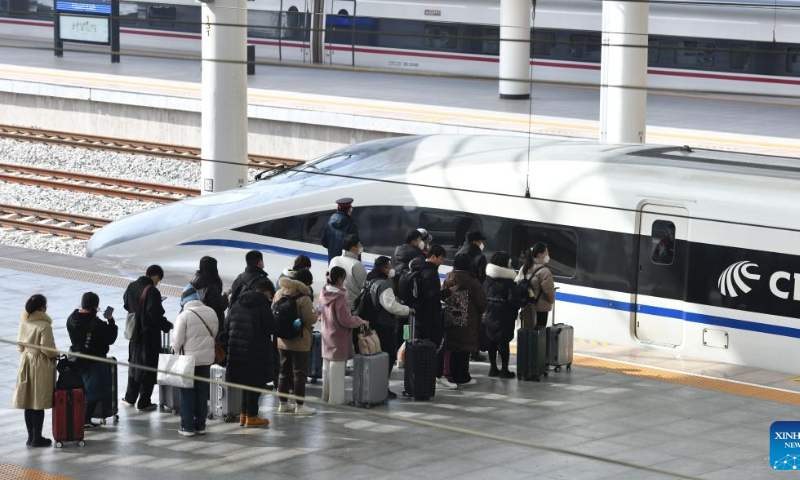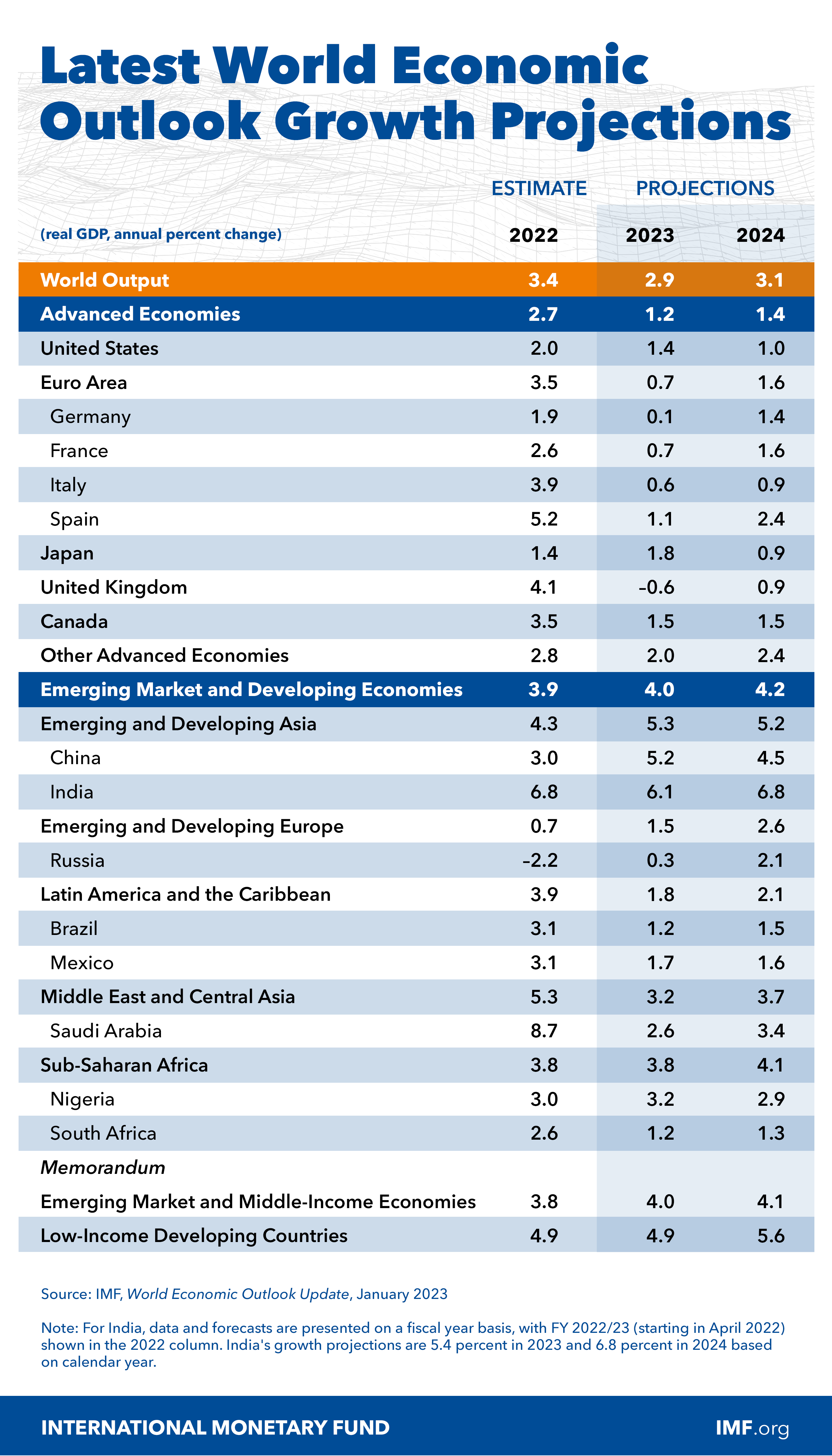China plans to build 2,500 km new high-speed railways in 2023, extending world’s longest rail transport system
By Global Times Published: Jan 29, 2023 03:19 PM Updated: Jan 29, 2023 11:03 PM

Passengers line up to borad a train at Fuyang West Railway Station in east China's Anhui Province, Jan. 27, 2023. Railway stations, highways and airports across China are bracing for a fresh travel peak as a growing number of travelers hit the road and return to work after a week-long Spring Festival holiday which ends on Friday. Photo: Xinhua
China plans to build more than 3,000 kilometers of railways in 2023, including 2,500 km of high-speed lines, to upgrade the system into an advanced transport network, China Railway Co announced on Sunday.
In 2023, China Railway Co will enhance the links among different levels of railways and fill gaps along railway routes in order to accelerate the construction of rail infrastructure that will help the economy and benefit all of society.
Construction of multiple key projects including the Sichuan-Xizhang Railway in the country's southwest will be accelerated, the company said.
China Railway Co completed 710.9 billion yuan ($104.8 billion) of fixed-asset investment in 2022, and it built 4,100 km of new railways, including 2,082 km of high-speed lines, achieving its goals.
At the end of 2022, the length of China's operational railways exceeded 155,000 km, including 42,000 km of high-speed railways.
Last year, 102 railway-related projects were under construction, with 26 projects being commenced and 29 projects entering commercial operation. China Railway Co also issued a development outline for the 14th Five-Year Plan period (2021-25).
Data from the National Bureau of Statistics showed that China's annual investment in fixed assets reached 57.21 trillion yuan in 2022, up 5.1 percent year-on-year.
Investment in infrastructure construction grew 9.4 percent year-on-year, with a 3.7 percent rise in roads and a 1.8 percent increase in railways.
The National Development and Reform Commission, the government's leading economic planner, announced during a regular press conference on January 18 that relevant authorities will provide fiscal support for key infrastructure projects in remote areas of China's middle and western regions, and encourage more social investment to those projects.

